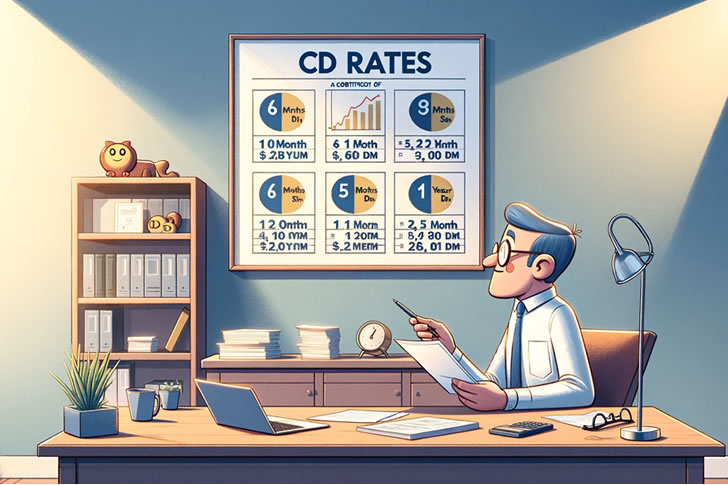How to Secure High Returns on Your Investment with Certificate of Deposit CD
In today’s financial landscape, securing a Certificate of Deposit (CD) with favorable rates is an effective way to grow savings over a fixed period. While the interest rates on CDs can vary significantly between financial institutions, understanding how to navigate these rates is crucial for any savvy saver. This article provides a comprehensive guide on how to find CDs with reasonable rates that align with your financial goals.

Understanding CDs and Their Benefits
A CD is a type of federally insured savings account that has a fixed interest rate and fixed date of withdrawal, known as the maturity date. Unlike standard savings accounts, CDs typically offer higher interest rates in exchange for the depositor agreeing to leave a lump-sum deposit untouched for a predetermined period. CDs are a safe investment, especially for those looking to avoid the volatility of the stock market.
Steps to Securing Favorable CD Rates
1. Define Your Savings Goals
Before shopping for a CD, it’s important to determine your savings goals. Consider why you are saving: Is it for a short-term goal, like a vacation, or a long-term goal, such as retirement? The length of time you can commit to leaving your money in a CD will influence which terms are best for you.
2. Research Current CD Rates
Start by researching the current rates offered by various banks and credit unions. Rates can vary based on the term length, amount deposited, and the financial institution’s policies. Websites that aggregate financial rate information can be a good starting point to compare what different financial entities are offering.
3. Consider Online Banks
Online banks often offer more competitive rates than traditional brick-and-mortar institutions due to lower overhead costs. Explore the rates from online banks as well as from traditional ones to ensure you are not missing out on higher returns.
4. Look at Credit Unions
Credit unions are not-for-profit organizations that typically offer higher interest rates on CDs compared to commercial banks. Membership is required to open a CD, but joining can be as simple as making a small donation to a charitable organization affiliated with the credit union.
5. Short vs. Long Term CDs
Determine whether a short-term or a long-term CD is more suitable based on your financial timeline. While longer-term CDs usually offer higher rates, this might not always be the case depending on the economic environment. Occasionally, a series of shorter-term CDs, a strategy known as “laddering,” can provide flexibility and competitive yields without locking you into a single rate for an extended period.
6. Promotional Rates
Be on the lookout for promotional offers. Banks sometimes offer higher rates on CDs for new customers or for a limited time. These promotions can significantly boost your earnings, especially if you time your investment well.
7. Read the Fine Print
Before committing to a CD, read the terms and conditions carefully. Understand the penalties for early withdrawal and whether the interest rate during the term is fixed or variable. Knowing these details upfront will help you avoid any surprises and manage your investment effectively.
8. Negotiate Your Rate
While not always possible, some banks may allow negotiation on a CD rate, especially if you are depositing a large sum or already have other accounts at the institution. It doesn’t hurt to ask if better rates are available than those advertised.
9. Monitor Rate Trends
Keeping an eye on how CD rates are trending can help you decide when to buy. Interest rates can fluctuate based on federal economic policies and market conditions. By understanding these trends, you can attempt to lock in a rate before it decreases.
Conclusion
Finding a CD with a good rate requires a bit of research and strategy, but it is a straightforward process that can significantly enhance your savings growth. By setting clear goals, comparing offers from multiple institutions, considering the length of investment, and staying informed about market conditions, you can make the most of your investment. Remember, the key to maximizing your returns is to shop around and stay educated on the nuances of CD investments.







Recent Comments